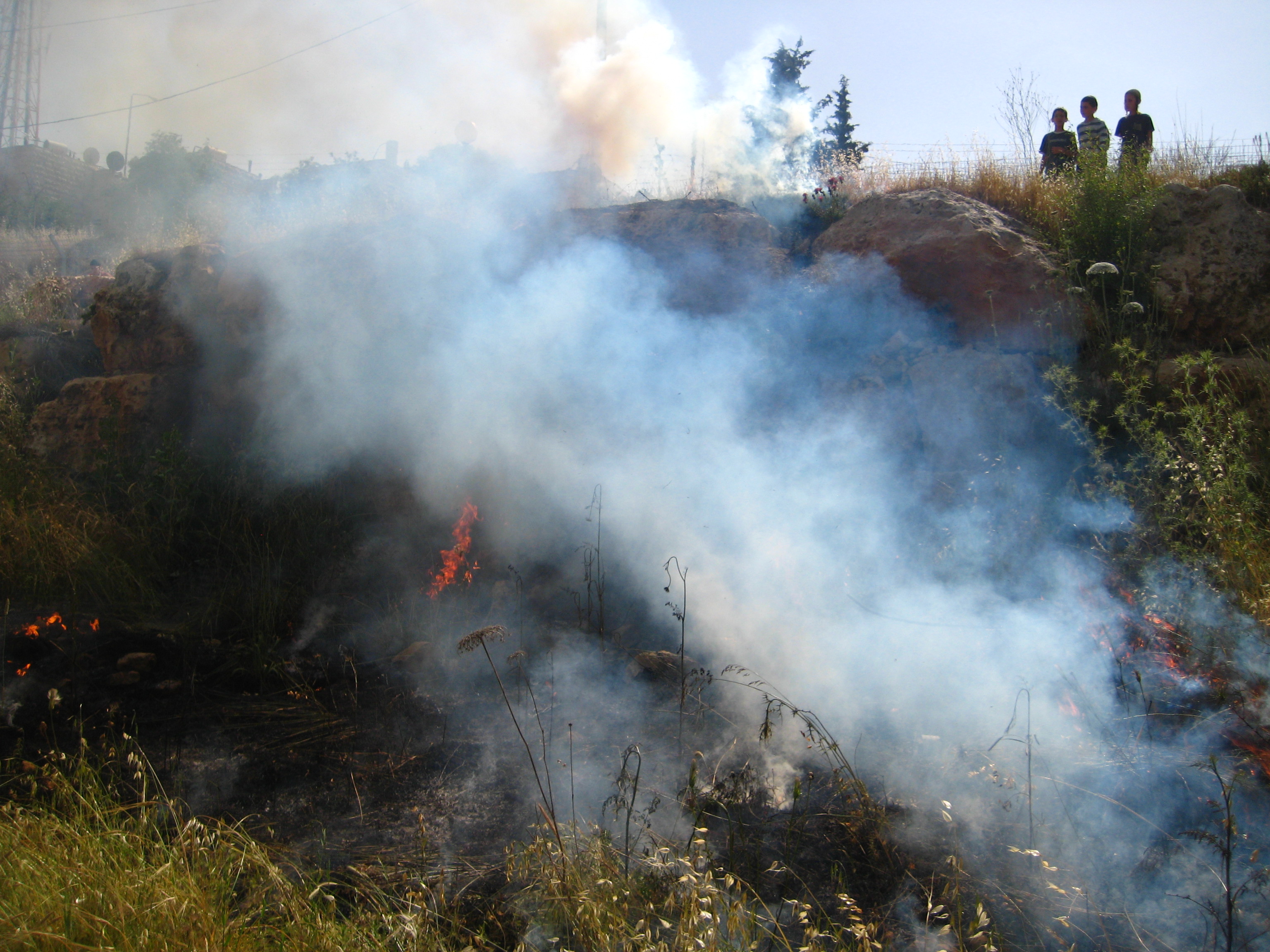Tag: Kiryat Arba settlement
-
15 year old injured after attack with stones in Hebron
30 June 2011 | International Solidarity Movement On Sunday June 25, 15 year old Muhammed Jabari was attacked by settlers throwing stones in Hebron, causing injuries to his wrist and leg. The land and house of the Jabari family is situated between the illegal settlements of Kiryat Arba and Givat Ha’avot in east Hebron, making…
-
Olive trees destroyed outside Bethlehem
31 May 2011 | International Solidarity Movement This morning Maher Abu Sab’a’ discovered that 248 out of the 250 olive tree saplings that had recently been planted on his land had been destroyed over-night. The saplings which had been planted three months previously had been systematically uprooted from the earth and broken with their remains…
-
Fire at field near Kiryat Arba, Hebron
22 May 2011 | International Solidarity Movement On Thursday May 19 a part of the field of Abd al Kareim al Jabari in Western Hebron, where International Solidarity Movement activists have been present for the past ten days, was set on fire. Settler children started to throw stones at the ISM activists as soon as…

